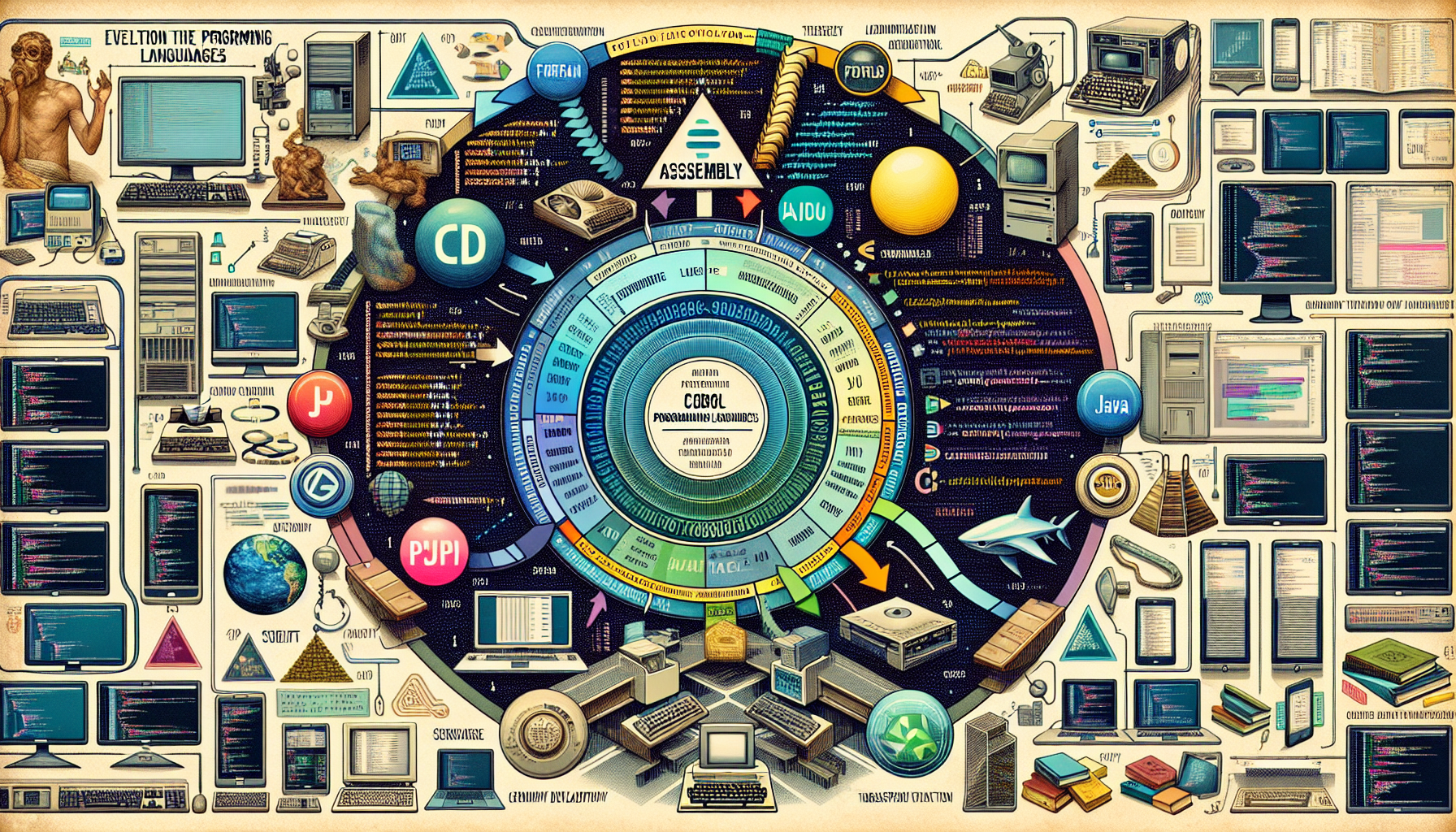Breaking Code Barriers: The Evolution of Programming Languages


Hanzala
3 min read ⋅ July 12, 2024
Breaking Code Barriers: An Insight into the Evolution of Programming Languages
Programming languages are one of the critical pillars enabling humans to harness the power of computers. Over the years, these languages have undergone profound changes to meet the evolving technical and business requirements. In this blog, we’ll take you through the exciting journey of programming language evolution and explore how they shape today’s technology-driven landscape.
The Footprints at Dawn: Early Programming Languages
In the early days of computer technology, programming languages such as Assembly language, FORTRAN, and COBOL laid the backbone for software development.
The Tides of Change: Emergence of High-Level Languages
As the complexity of applications increased, high-level languages such as C, Java, and Python rose to prominence. These user-friendly languages revolutionized programming by simplifying code writing, enhancing code reusability, and enabling cross-platform development.
Coding Democracy: Open Source Languages
The open-source revolution democratized coding, allowing developers to view, use, modify, and distribute the source code of programming languages. Languages like PHP, JavaScript, and Ruby flourished in the open-source community due to the transparency, flexibility, and innovation it offers.
Riding the Mobile Wave: Swift and Kotlin
The dominance of mobile apps saw the emergence of new programming languages like Swift (for iOS) and Kotlin (for Android), tailored to enable faster development, better performance, and enhanced user experience.
The Challenges: Complexity and Vulnerability
As programming languages evolve, they become more complex and can create steep learning curves for new developers. Moreover, different languages can manifest different vulnerabilities, making security a critical concern in modern software development.
The Next Espresso Shot: Future of Programming Languages
Quantum computing, AI, machine learning, and the continuing mobilization of technology point towards a future where new programming languages will emerge, and existing ones will adapt to encapsulate these advanced concepts natively.
As programming languages continue to evolve, they are not just a tool for building software – they shape how we perceive problems and influence the solutions we develop. Hence, as coders, being adaptable and continually learning will be key traits that will help us ride the exciting waves of programming language evolution.
Author: Hanzala – Software Engineer
Do you have questions or need further clarification? I’m here to help. Email me anytime at hi@hanzala.co.in